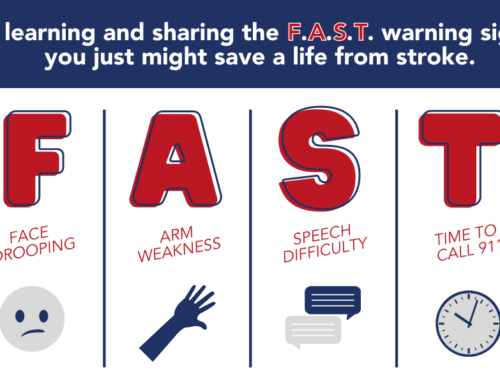 Having access to reliable information about heart health can be more than educational — it can often be lifesaving. Atrial fibrillation, also known as AFib or AF, is a common condition that affects the heart’s normal rhythm. Though typically AFib itself is a benign condition, there are complications and risk factors associated with it, including a heightened risk of suffering a stroke. Knowing how to quickly realize and effectively treat atrial fibrillation is essential for preventing adverse outcomes.
Having access to reliable information about heart health can be more than educational — it can often be lifesaving. Atrial fibrillation, also known as AFib or AF, is a common condition that affects the heart’s normal rhythm. Though typically AFib itself is a benign condition, there are complications and risk factors associated with it, including a heightened risk of suffering a stroke. Knowing how to quickly realize and effectively treat atrial fibrillation is essential for preventing adverse outcomes.
Understanding the relationship between atrial fibrillation and stroke is an integral part of maintaining strong overall heart health and preventing disease. Read on for more information about this prevalent condition and how it relates to stroke.
What is Atrial Fibrillation?
Atrial fibrillation is defined as a “quivering or irregular heartbeat,” making it a common arrhythmia of the heart’s normal electric impulses. In a patient with AFib, the heart’s upper chambers, known as the atria, quiver irregularly and ineffectively. These weakened and unusual contractions prevent blood from flowing efficiently to the heart’s lower chambers, the ventricles. This increases an individual’s risk for developing blood clots.
Despite the fact that at least 2.7 million Americans live with atrial fibrillation, research shows a worrisome lack of understanding about the condition and its severity. In 2009, barely a third of afflicted patients surveyed understood that theirs was a serious condition — even though AFib puts them at up to six times the risk for stroke.
Know the Symptoms
Patients suffering from AFib may be able to quickly pinpoint certain symptoms that typically present when the heart is out of rhythm. According to the American Heart Association, these symptoms include:
- Noticeable palpitations and rapid thumping
- Dizziness or sweating accompanied by chest pain
- Shortness of breath and heightened anxiety
- Tiring easily during exercise or physical activity
Since these symptoms can also be present with other heart conditions, it’s important to have them carefully evaluated by a doctor or cardiologist.
Recognize the Risk Factors
Underlying causes of AFib may include high blood pressure, an overactive thyroid, malfunction of the heart valves, and lung disease. Often times, however, AFib presents on its own. An electrocardiogram (ECG) helps physicians confirm the presence of atrial fibrillation.
Pursue Treatment Options
Due to the fact that AFib elevates the risk for more serious complications, proactive treatment is crucial. Doctors may prescribe a combination of beta-blockers, calcium blockers, or blood thinners to help return the heart’s rhythm to normal and reduce the chance of clotting.
The Atrial Fibrillation + Stroke Connection
Although there are many independent risk factors for stroke, atrial fibrillation appears to be an important marker in determining an individual’s future stroke risk. In fact, an irregular heart rhythm is present in about one of every five strokes, making AFib as much of an indicator of stroke as high blood pressure.
Additionally, doctors do not currently have a reliable measure of how long AFib has to occur before a stroke takes place. This means it’s ideal to start treating an irregular heart rhythm caused by atrial fibrillation as early as possible.
Why Does AFib Lead to Stroke?
Unlike high blood pressure, which slowly damages blood vessels that deliver critical oxygen to the brain, atrial fibrillation increases stroke risk by allowing blood to pool in the heart. The pooling of blood leads to an increased risk for clots, which can easily break off and travel to the brain.
When patients have both high blood pressure and atrial fibrillation, there is an even greater risk for future stroke due to the combined arterial damage and clotting risk.
Treatment and Prognosis
Research shows that having atrial fibrillation increases a person’s stroke risk by an average of 4 to 6 times. Because individuals with AFib can have more than one stroke or even have silent strokes they’re not aware of, immediate treatment is heavily encouraged.
The administration of blood-thinning drugs like Warfarin has been shown to reduce the risk of stroke by as much as one-half to two-thirds. This hopeful statistic sheds light on the importance of developing an AFib treatment plan geared specifically toward preventing the formation of dangerous blood clots.
Taking Heart Health Seriously
If you’re at risk for atrial fibrillation, or if you’ve already been diagnosed, it’s critical that you maintain regular checkups with your doctor or cardiologist. Take action and have a plan in place to ensure that your heart condition is carefully managed in order to prevent the risk of stroke and other serious complications. The best time to take heart health seriously is today.
Tri-City Medical’s Cardiovascular Health Institute (CVHI) is a trusted San Diego provider of heart screenings and care. We offer a wide array of services and treatments to help you maintain your heart’s best health. Schedule an appointment today to meet with one of our cardiovascular experts.





![Side Effects of a Stroke [INFOGRAPHIC]](https://www.tricitymed.org/wp-content/uploads/2018/04/shutterstock_596475470-500x383.jpg)